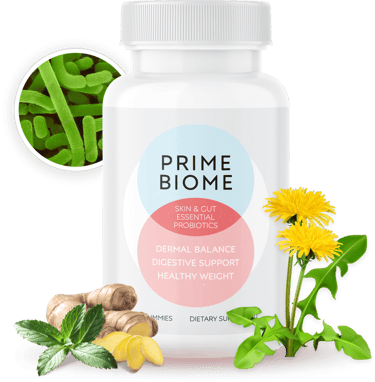Rebuilding Your Body from the Inside Out: Vitamin and Nutritional Health After Addiction Recovery
Years of drug and alcohol use can lead to serious vitamin and nutrient deficiencies. This post explains why vitamin and nutritional health after addiction recovery is depleted, why testing is critical in recovery, what deficiencies to watch for, and how to rebuild your health through targeted supplementation and testing.
HEALTH & WELLNESS AFTER ADDICTION


On The Road to Full Recovery
You quit.
You detoxed.
You’ve stayed clean.
But why do you still feel drained, foggy, anxious—or even depressed?
The truth is, recovery isn’t just about quitting drugs or alcohol. It’s also about fixing what addiction broke inside your body. And one of the first systems to suffer during active use is your nutritional health.
Drugs and alcohol deplete vital nutrients. They sabotage digestion. They interfere with the way your body absorbs, processes, and stores vitamins and minerals.
So, if you’ve been sober for months and still don’t feel “well,” it’s not all in your head.
You might be running on empty—and not even know it.
How Addiction Wrecks Your Nutritional Health
Most people in active addiction are not eating balanced meals. But even those who do are often still malnourished—because substances interrupt normal nutrient absorption.
Here’s what long-term use does:
Alcohol: Blocks absorption of vitamins A, D, E, K, thiamine (B1), folate, and B12. Damages the gut lining and liver, impairing processing.
Opioids: Slow down digestion, leading to constipation and poor absorption. Chronic users often suffer from magnesium and calcium deficiency.
Stimulants (meth, cocaine): Suppress appetite, which can lead to extreme calorie and nutrient restriction.
Benzodiazepines: Alter metabolism and gut function. Long-term use may affect vitamin D, magnesium, and calcium levels.
This nutritional damage doesn't end when you stop using.
It lingers.
And unless you address it head-on, it can sabotage your recovery.
Why Nutritional Testing Is a Must in Recovery
You can’t fix what you don’t know.
Nutritional testing is a vital tool to figure out exactly what your body is missing—and what it needs to heal.
Tests often include:
Vitamin B12 & Folate Levels – deficiencies can cause fatigue, mood swings, and brain fog.
Vitamin D – low levels are common in recovery and linked to depression and poor immune function.
Iron & Ferritin – for anemia and oxygen transport in the blood.
Magnesium & Potassium – critical for nerve and muscle function.
Zinc, Selenium, and Calcium – essential for immune, thyroid, and bone health.
Comprehensive metabolic panel (CMP) – to assess electrolyte balance, glucose, and organ function.
Micronutrient testing panels – offered by specialized labs to assess dozens of vitamins, minerals, amino acids, and antioxidants at once.
Getting these tests done through your doctor, a nutritionist, or functional medicine provider can help you design a precise plan to restore what’s been lost.
Who Should Get Tested?
Every recovering addict or alcoholic. Period.
It doesn’t matter if you were using for 2 years or 20. If you’ve experienced any of the following, testing is especially critical:
Ongoing fatigue or exhaustion
Brain fog or memory issues
Mood swings or unexplained depression/anxiety
Digestive issues
Muscle cramps or weakness
Poor sleep
Hair loss or brittle nails
Frequent illness or slow wound healing
Many people don’t realize they’re deficient until they start addressing it—and suddenly feel dramatically better.
The Benefits of Testing and Rebalancing
Once you get tested and start supplementing the right way, you’ll notice massive changes:
Energy levels rise
Mental clarity returns
Mood improves
Immune function strengthens
Cravings reduce
Physical recovery accelerates
You’ll feel like the fog finally lifted—because it did.
This isn’t magic. It’s biology.
Your body can’t heal unless it has the tools it needs.
Rebuilding With Food and Supplements
Once your test results come in, a few steps can help guide your recovery nutrition plan:
Targeted Supplements
Take only what you’re deficient in. More isn’t always better. Work with a provider if possible.Nutrition-Dense Foods
Aim for whole foods—leafy greens, lean protein, colorful vegetables, nuts, seeds, and fruits.Hydration
Addiction often leads to dehydration. Water supports every repair process in the body.Gut Healing
Add fermented foods (like yogurt, kefir, sauerkraut) or a probiotic supplement to restore gut bacteria.Avoid Sugar & Processed Foods
These spike inflammation, worsen mood, and hijack your progress.
Professional Advice and Support
Work with a team if you can:
Primary care doctors can order basic labs.
Nutritionists or dietitians can guide your food and supplement plans.
Functional medicine providers can dig deeper with advanced panels.
Recovery coaches or addiction counselors can help you stay on track with health goals.
You don’t have to figure it out alone.
Final Thought: Don’t Let Nutritional Damage Undo Your Progress
Sobriety is the first step.
Now it’s time to get your body back.
Nutritional damage from addiction is real, and it’s repairable. But only if you take it seriously. Testing, supplementation, and a healthy diet can restore what addiction stole—and give you the energy, strength, and mental clarity to build a life you actually want to stay sober for.
So get the tests.
Take the vitamins.
Eat the food.
Fuel your healing.
This powerful blend supports:
Smoother, firmer skin with fewer visible lines
Balanced oil production to reduce breakouts and dryness
Improved digestion that feels like clockwork
Sustainable, healthy weight loss without extreme diets
Why PrimeBiome Works from the Inside Out
Looking for a real solution to wrinkles, dark spots, sagging skin, or hormonal acne?
PrimeBiome is designed specifically for women over 35 who are tired of temporary fixes and want long-lasting, radiant skin. Instead of just treating the surface.
PrimeBiome works from within - repairing both your gut and skin microbiome to help you achieve a clear, glowing, and youthful complexion.






















